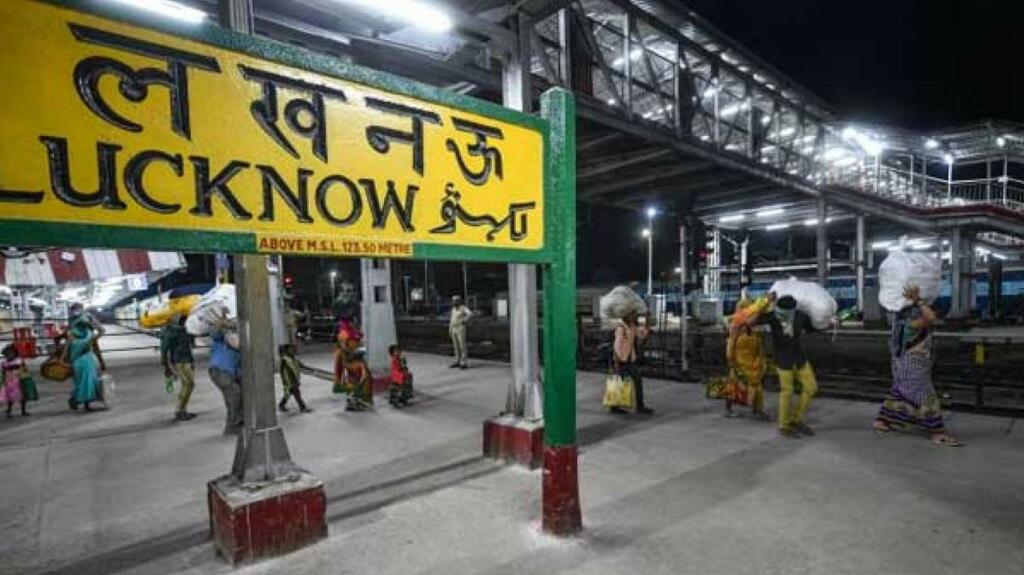“Sheshavatar Bhagwan Laxman ki pawan nagri Lucknow mein aapka swagat aur abhinandan (Welcome to the holy city of Bhagwan Laxman),” these were the words of CM Yogi Adityanath, while he welcomed Prime Minister Narendra Modi in the capital of Uttar Pradesh. While, the popular belief propagates that the name of the capital city will be changed to something resembling the stature of Bhagwan Laxman, read as I explain why CM Yogi won’t rename Lucknow.
Yogi’s next move: Lucknow to Lakshmanpuri
Uttar Pradesh CM Yogi Adityanath has a zeal for correcting distorted history being propagated for decades. In his last tenure, he fulfilled two long-standing demands, by renaming Faizabad district as ‘Ayodhya’, and Allahabad as ‘Prayagraj’.
Read More: Congress’ facade of ‘Hinduism’ unravels at the slightest touch
Keeping his track record in mind, it was being speculated, that Lucknow will be next on Yogi’s list as far as renaming is considered. It is known by everyone that ‘Lucknow’ is a distorted version of what was originally a name inspired by Bhagwan Ram’s brother Laxman. And the Bhartiya Janta Party has embraced the Laxman theory for a very long time. Hence, it becomes ideal to speculate that ‘Lucknow’ will be the next city to be renamed in order to reconnect the city to its lost cultural glory. But there is a catch.
The contested legacy of Lucknow
The city of Lucknow has many stories attached to it. The folklores present varied stories of the city’s foundation. In the book, Ankaha Lucknow, BJP leader Lalji Tandon explained the loss of the city’s connection with the brother of Bhagwan Ram.
Read More: Reclaiming Bharat: Why Ghaziabad needs to be renamed as Harnandpur
He elaborated how over the years, the Laxman ka Tila had been forgotten, and the only thing that is now associated with the Tila is “Tile Wali Masjid”. This reference survives in context of a masjid that was built in the city during Aurangzeb’s reign. He claimed in his book that Old Lucknow was settled around Laxman ka Tila.
He claims that the city today known as Lucknow has witnessed a journey from “Laxmanwati to Laxmanpur to Lakhnawati to finally Lucknow”, as the city was given to Bhagwan Laxman by his elder brother Prabhu Shri Ram himself.
Even historians agree with the folklore associated with Ram-Laxman, and historian Abdul Halim Sharar in his book Purana Lucknow wrote, “It can be surmised that after Lord Ram returned from exile, this land was given to his brother Laxman.” He further wrote, “A hamlet was established around a tila, which came to be known as Laxmanpur, and the tila became popular as Laxman Tila.”
CM Yogi won’t rename UP’s capital Lucknow
Well, there lie many submissions that Lucknow is a settlement, which belonged to Bhagwan Laxman. Still, there is no need to rename Lucknow as Laxmanpuri. And, the reason lies hidden in the language ‘Awadhi’.
Awadhi is a language in which recitals like Hanuman Chalisa and Ram Charitmanas have been written. The name Lucknow can be bifurcated as ‘Luckn’ and ‘ow’ pronounced as aau, which means ‘village’ in the Awadhi language. Several villages in the Awadh region have been named ending with aau, like Shishmaau, Maau, Jajmaau.
Here, the dialect also plays a major role, in the Awadh region or say the Purvanchal, ‘Lakshman’ is pronounced as ‘Laksman’. Often Bhagwan Lakshman is worshipped as Laxman or Lakhan in the Purvanchal region of Uttar Pradesh. Hence, in the word Lucknow, ‘Luckn’ has been derived from Bhagwan Lakhan i.e., Lakshman, Bhagwan Ram’s younger brother and ‘ow’ for village, this simplifies Lucknow’s name as a village of Bhagwan Lakshman.
Although there is no need to rename the city, there is an immediate necessity to remove the tag of ‘Nawabon ka Sheher’ from the name of a city that has once gifted to Bhagwan Lakshman by his elder brother Bhagwan Shri Ram.
